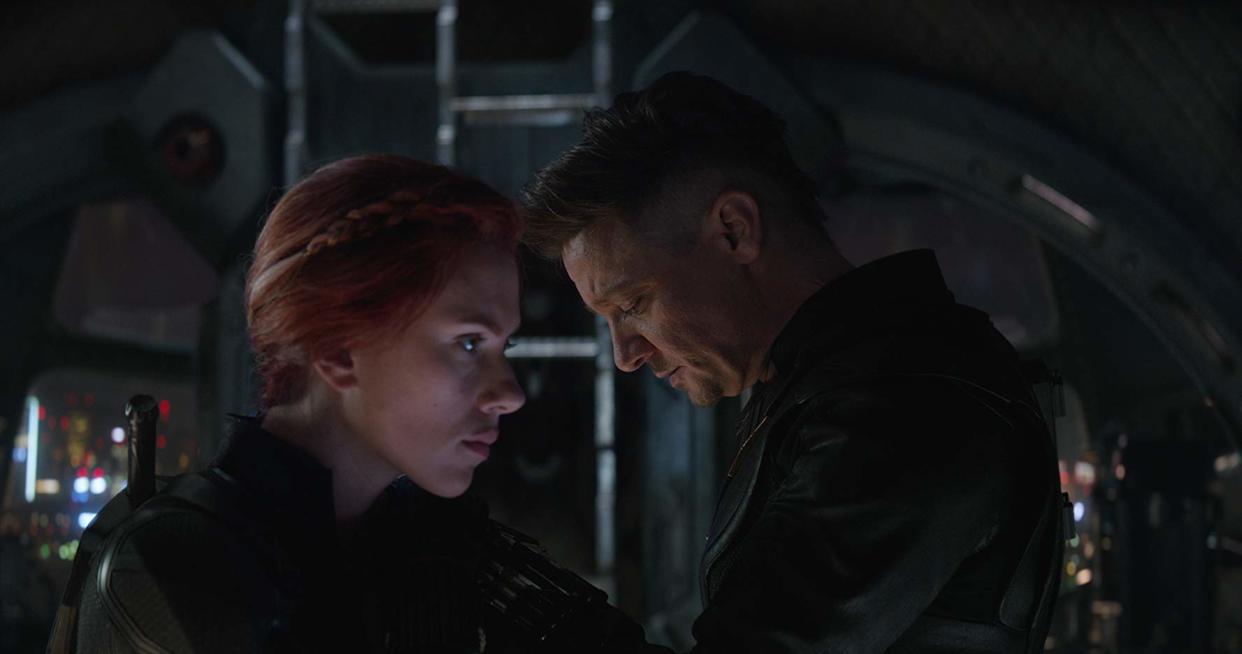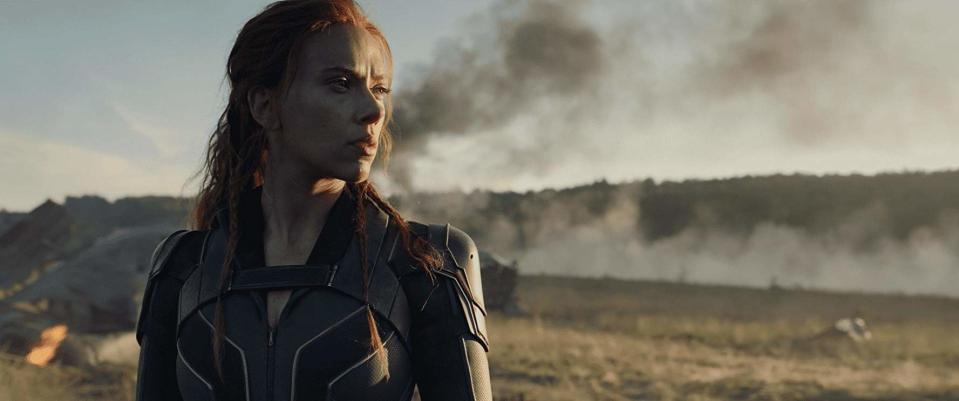Scarlett Johansson was so worried about Black Widow’s death in 'Avengers: Endgame' that Marvel changed it

Scarlett Johansson and the rest of Avengers: Endgame’s creative team were so concerned about Black Widow’s original death scene in the blockbuster that they decided to alter it.
The Oscar-nominated actress recently made this admission to Entertainment Weekly, revealing that Natasha Romanoff was originally supposed to perish in Avengers: Endgame during a chase scene with an “army of Dementor-typre creatures.”
Read More: 'Black Widow' is 'done running' in the final trailer for Scarlett Johansson's solo Marvel movie
This never sat right with Johansson, though, who admits that she remembers thinking at the time, “Parents will never forgive us for how these creature look.”
It turns out that directors Joe and Anthony Russo, producer Kevin Feige, and writers Christopher Markus and Stephen McFeely weren’t too happy with this sequence, too. Entertainment Weekly also reported that they ultimately decided “the sequence felt too busy in an already action-packed film.”

Soon it was decided that Johansson’s Black Widow would die in a much quieter and more emotional sequence with Jeremy Renner’s Hawkeye, which saw her sacrifice herself in order for him to attain the Soul Stone.
Johansson clearly believes this was the right decision. “We wanted to leave [the audience] with the weight of that loss and the shock of it.”
Read more: First look at Black Widow action figures
Markus previously opened up about Romanoff’s death in Endgame with the Huffington Post, breaking down why the scene had so much weight and emotional heft.
“We had to take two people up there who love each other and we know that Clint [Renner] and Natasha [Johansson] have had a very long relationship that they would qualify, and then once we brought them up there it became a question of who is at the end of their story, because we wanted — when we were ‘killing people’ or ending their run — we wanted to make sure that they had closure, that there was an appropriateness to the death when it happened so that it would feel heroic and not tragic.”

 Yahoo Movies
Yahoo Movies 
